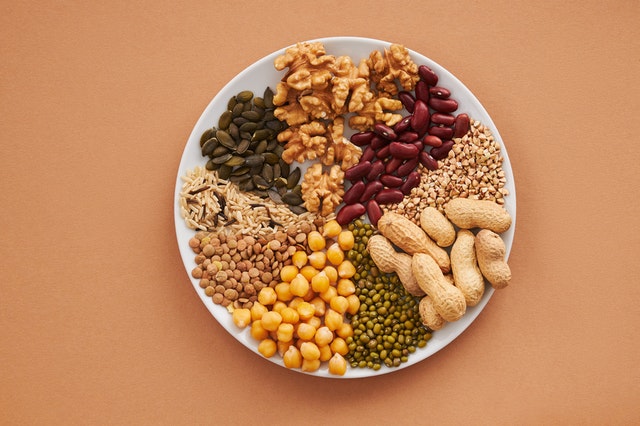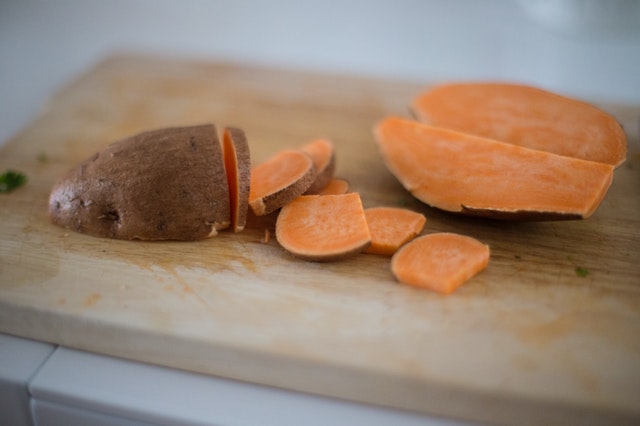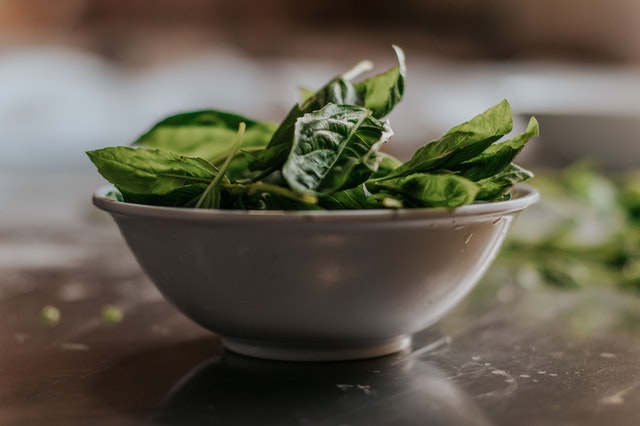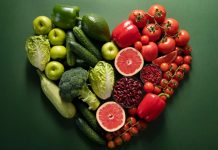A whopping 12 million people above 40 years of age in the US alone have some sort of vision impairment. While a lot of things can cause eye problems, most people have myopia or hypermetropia because of a poor diet. Vitamin A plays a crucial role in maintaining eye health, along with vitamin E, C, B6, B9, and B12. Today, let’s look at vegetable good for eyes that are rich sources of these nutrients.
We’ve picked nine vegetables that have the vitamins, minerals, and nutrients that can boost eye health and vision.
Spinach: Vegetable Good for Eyes
Doctors consider spinach as one of the best foods for the eyes. It contains zeaxanthin and lutein, two natural substances that are rich in antioxidants. They reduce the risk of eye problems. Consuming proper amounts of raw spinach in your diet improves your eye health over time.
There are myriad ways to consume spinach. A green smoothie is a popular dish with spinach as the main ingredient. You can also eat cooked spinach by boiling and churning it to make a paste.
Bell Peppers
Bell peppers or capsicums are a rich source of vitamin C, another essential nutrient that promotes eye health and overall immunity. Vitamin C is good for the small blood vessels in the eyes. It’s highly recommended for people with cataracts or at risk of getting cataracts.
Bell peppers are available in three colors: red, yellow, and green. Though bell peppers of all colors are good, those with brighter colors have high concentrations of vitamin A and vitamin C. They are also sweeter than green capsicums.
Collard Greens: Vegetable Good for Eyes
Collard greens, like spinach, are green leafy vegetables rich in vitamin A and other antioxidants. They also contain lutein, zeaxanthin, and carotene, which are great for your eyes.
Like spinach, you can eat collard greens in many ways. The most common way is to include it in a vegetable salad. You can also boil and churn them to make a smoothie.
Legumes
Legumes of all kinds are healthy for your eyes. If you’re not sure what legumes are, they are plants belonging to the Fabaceae family. People also refer to them as beans. Some examples include chickpeas, peanuts, black beans, kidney beans, and navy beans.

All legumes contain zinc and bioflavonoids. These substances strengthen the retina and reduce the risk of cataracts, macular degeneration, and other eye problems. Zinc also protects the eyes from light damage.
Kale: Vegetable Good for Eyes
Kale is pretty similar to spinach and collard greens. It is a leafy green vegetable considered a superfood, especially for people with eye problems. It contains zeaxanthin and lutein, which help prevent age-related eye conditions. Since the human body doesn’t make these nutrients in the body, you need to take them from external sources.
You can eat kale in many ways, though the most popular way is to turn it into snack chips by baking it in olive oil for about 20 minutes. You can also add them to vegetable salads or make a smoothie from them.
Carrots
Carrots are another fantastic food for the eyes because of the rich presence of vitamin A and beta carotene. They strengthen the eye’s surface and reduce the risk of chronic eye conditions and infections.
One of the best things about carrots is they are easy to eat. All you need to do is wash them, and they are ready to eat raw. You can also boil them and add them to vegetable salads. Some people even add them to muffins and pancakes.
Oranges: Vegetable Good for Eyes
Oranges and other citrus fruits and vegetables like lemon and tomato have high concentrations of vitamin C, which is excellent for your eyes. Regular consumption of vitamin C makes your blood vessels healthy. When your eyes have healthy blood vessels, they are at a lower risk of developing conditions like cataracts. Oranges are easy to eat. Just peel them and add them to your fruit salad.
Sweet Potatoes
Sweet potatoes and other yellow-orange fruits and vegetables are all great sources of vitamin A and beta carotene, which are essential elements for good eye health. These nutrients help your eyes adjust the amount of light entering them. If sweet potatoes aren’t available in your area, you can also eat mangoes, apricots, and cantaloupe.

Other Foods Good for Eyes
Apart from vegetables and fruits, there are various other foods you can eat for optimum eye health. These include:
- Seeds and Nuts: Seeds and nuts are rich sources of vitamin E and other nutrients that can promote eye health. Consuming only an ounce of nuts every day will give half the amount of the recommended daily intake of vitamin E.
- Salmon: Salmon contains DHA and DPA — two omega-3 fatty acids essential for retinas to work. Consuming omega-3 fatty acids also protects your eyes from conditions like glaucoma and AMD.
- Lean Meat/Poultry: Lean meats and poultry contain zinc, which plays two important roles. One, it strengthens the body’s immune system. Second, it facilitates the transportation of vitamin A, which is essential for the eyes. Oysters are the richest source of zinc, but you can get good amounts of it from chicken, pork, and beef too.
- Eggs: Eggs have always been one of the healthiest foods, and they are also easy to digest. They contain high concentrations of zinc, and the yolk contains zeaxanthin and lutein. Eggs also boost the production of the macula, a protective pigment in the eyes that controls vision.
- Dairy: All dairy products, like yogurt and milk, contain zinc and vitamin A, which are suitable for your eyes. Dairy from all sources is good for the eyes, though products from grass-fed cows are the most beneficial. The good thing about dairy is you can consume it in various ways. You can drink milk or coffee and include butter and cheese in your meals.
Wrap Up: Vegetable Good for Eyes
Many vegetables are great for the eyes and help prevent eye conditions like cataracts, dry eye disease, glaucoma, and atopic macular degeneration. Please note that many factors, such as genetics and lifestyle, can contribute to the development of these diseases. However, consuming good amounts of healthy vegetables can help you maintain good eye health for a long time.






